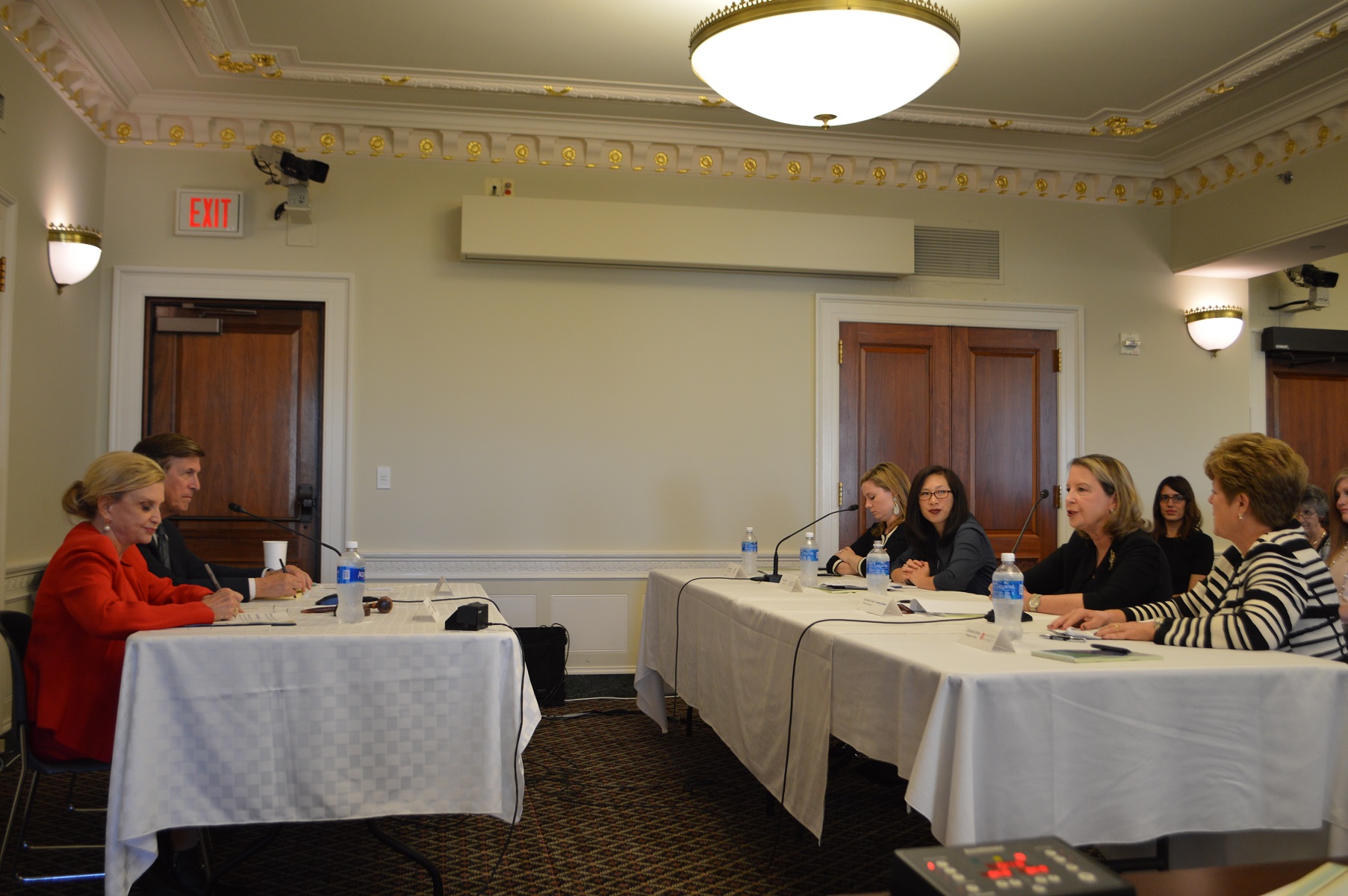|
Good afternoon.
Earlier today, I joined with Congresswoman Maloney to spearhead a forum on women in corporate leadership and the urgent need for gender parity in business.
Today’s witnesses provided expert testimony on increasing and harnessing the power of gender diverse corporate leadership. They included Serena Fong, the Catalyst Vice President of Public Affairs, Kiersten Barnet from The 30 Percent Club, Kymberlee Dwinell, Director of Diversity and Inclusion at Northrop Grumman, and Candace Duncan, Founding Member of Paradigm for Parity and a retired Managing Partner at KPMG.
Research consistently shows that companies with gender-balanced leadership do better, contribute more to the GDP, and provide smarter, safer working environments. Yet women continue to be under-represented in corporate leadership. In fact, a 2014 report published by the United States Government Accountability Office found that women comprised just 16 percent of seats in the boardroom.
There is much that Congress could do to boost economic growth and private sector success by encouraging business to eliminate gender disparities in corporate leadership. I will continue to make that work a major priority.
For example, I am proud to cosponsor H.R. 1611 – Congresswoman Maloney’s Gender Diversity in Corporate Leadership Act of 2017, which would require public companies to disclose and report the gender composition of their board of directors and nominees for board membership. In May, Representative Maloney and I sent a letter to the Securities and Exchange Commission to highlight this bill and urge the agency to take action on women’s under-representation on America’s corporate boards.
Another important step to increasing work opportunities for women is to formulate a policy to provide paid family leave. The United States is the only industrialized nation without such a policy, and it is an embarrassment that we have failed to pass paid family leave legislation. Currently, only 14 percent of U.S. employees have access to paid family leave through their employers – a problem that disproportionately affects women in the workforce.
I have also introduced the Fair Representation Act which would help achieve parity for women in Congressional elections. My bill would move the U.S. House elections into multi-member districts drawn by independent redistricting commissions, and states would elect candidates through ranked choice voting.
With proportional outcomes and a wider variety of candidates advancing to the general election, women and people of color would have more fair opportunities. Indeed, results from local elections show that in this ranked-choice voting system more women run – and win.
Improving gender parity in elected leadership could also increase the portion of women in corporate leadership by increasing the base of support for initiatives designed to improve gender diversity across the economy.
Studies show that a higher representation of women in top management roles contributes to more effective decision-making, retaining both talented men and women, and company performing overall. Companies sell themselves, their investors, and the American economy short when they leave women off their corporate boards and out of company leadership.
Initiatives like our forum today are vital to shaping policy and legislative actions aimed at breaking down barriers for women in top management roles and achieving greater gender parity in corporate leadership positions.
Thank you.
|


